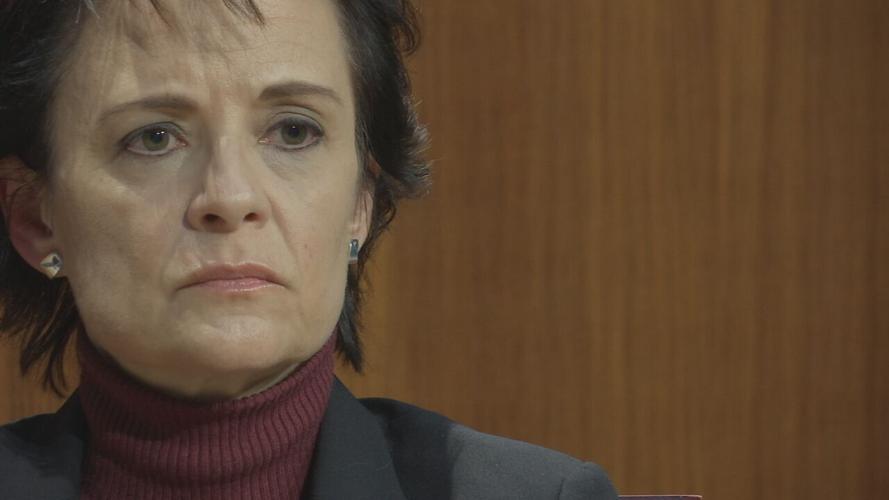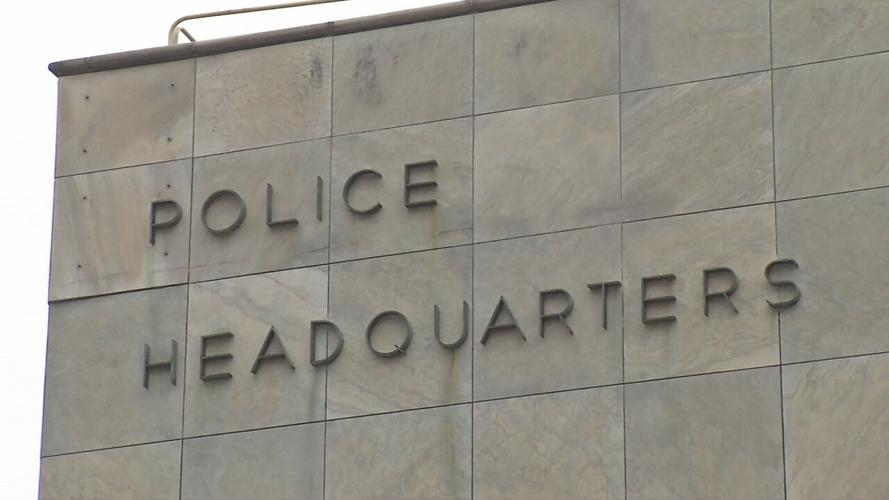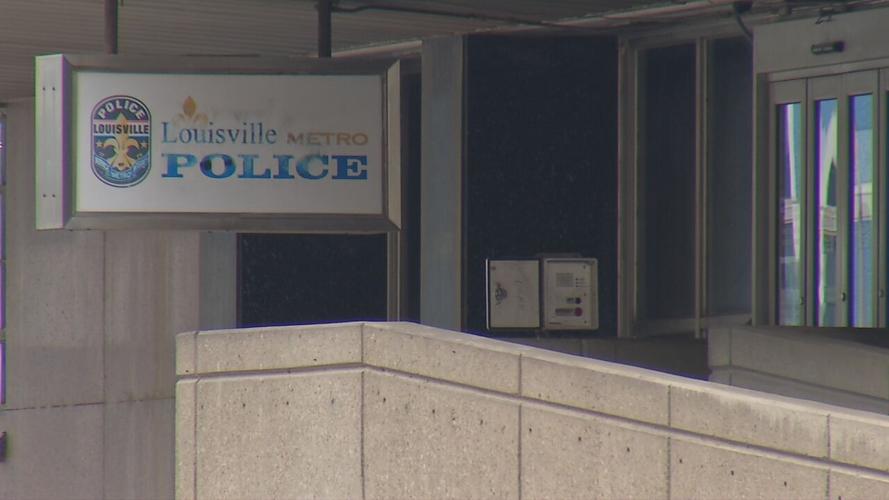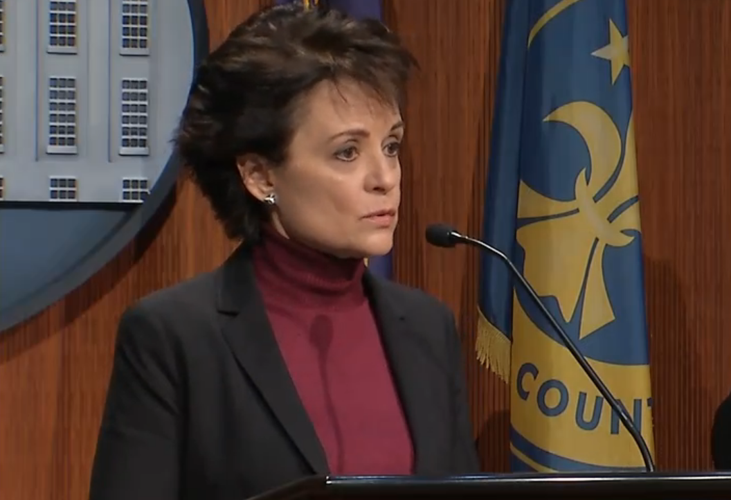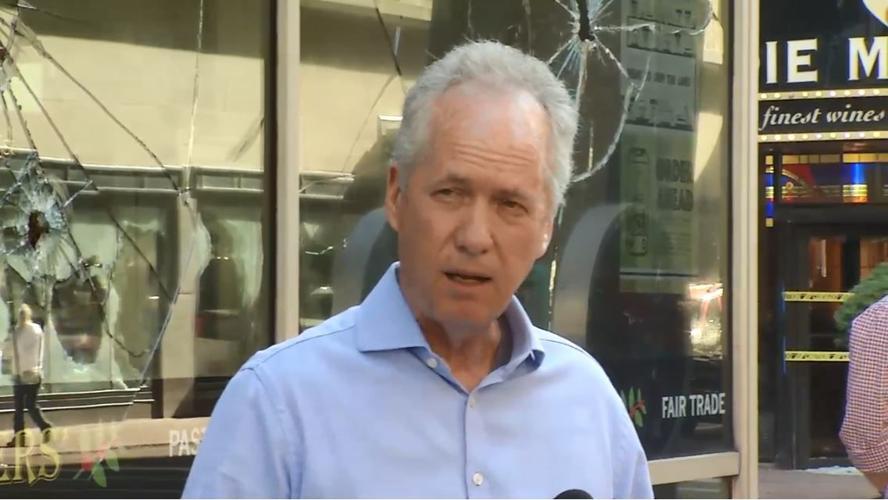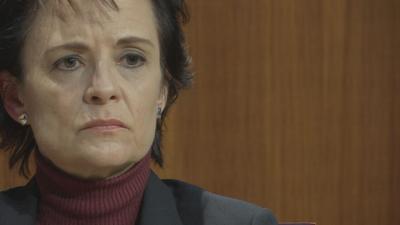LOUISVILLE, Ky. (WDRB) -- The Louisville Metro Police Department will soon be under new management.
Erika Shields, who rose from a beat officer to police chief during a 25-year career with Atlanta's police department, will become the first woman to permanently lead LMPD when she takes office Jan. 19.
Louisville Mayor Greg Fischer on Wednesday announced the hiring of Shields, who beat out 27 other applicants for the position and will earn an annual salary of $210,000.
Shields comes to Louisville after resigning from the Atlanta post in June 2019 after the fatal shooting of Rayshard Brooks, a Black man whom police shot and killed during a struggle in a Wendy's parking lot.
Shields sat down with WDRB News' Chad Mills on Wednesday for a one-on-one interview. The interview transcript, edited for length and clarity, follows below:
CM: First of all, chief, what are you feeling right now?
ES: "I've got a really long to-do list and I just want to get to work and start knocking some of this out. I had a list coming in here and it's grown exponentially today. So I'm ready to go."
CM: What are some of your top objectives for LMPD?
ES: "Well, absolutely, it's reining in violent crime. We've got to get the homicides under control. One hundred seventy-three is — it's unacceptable. And so I want us to really review operationally what we need to do differently, so that we can make an impact in the communities and make them safer."

Louisville Metro Police headquarters in downtown Louisville, Ky. (WDRB file photo)
CM: For the families of homicide victims out there who feel that a lot of times, because of the sheer number of current cases, they feel neglected. What do you say to those family members?
ES: "What I would say to them is, 'You are the highest priority for us.' Mayor Fischer and I met with two of the families today for this very reason. And so one of the things that I will be doing, one of my first action items, will be to see the caseload that each homicide investigator has, because at some level, if you start carrying too many cases, the work quality drops off. And so we need to ensure that we have an adequate number of investigators so these cases are getting solved (and) arrests are being made. And as a part of that, that the families are being communicated with on a regular basis."
CM: When you look at the summer that Louisville had, there is a contingent out there that would like to see more reform. The mayor has said that will be a priority going forward, as well. Where are some of the areas, from the outside looking in, where reform is still needed?
ES: "From the outside looking in, I have concerns about the amount of energy that is being put on drugs versus guns. I think that you have to go, I want to make sure that we are prioritizing our tactical performance and getting the guns off the street. I think that body-worn cameras, it's imperative that they be on all the time and that we'd be auditing that continually. ... There are a number of operational issues that we are going to have to drill down on. On a whole, I think the department and the city and the community, it's fantastic. And the opportunity to be a leader in this area, it's there. It is there. But it is going to also require a level of discomfort and a willingness to change, change how things have been done. And that doesn't mean that it's been wrong. It's just saying, 'Policing doesn't have the luxury of time.' We have to change."
CM: How do you balance making reforms while connecting with rank-and-file officers?
ES: "It's a huge challenge, and what I have found works best is communication. Because, typically, what happens is the rank-and-file (officers) envision something horrible, terrible, because they don't understand it (or) it doesn't get explained to them properly. The trickle down of information is never adequate. ... So, communication is imperative for everything that we do as a law enforcement agency."

WDRB file photo.
CM: When you face skepticism from some of the rank-and-file, which I'm sure you might be right now. Change is hard sometimes for some people. How will you bridge that gap and try to make connections with your officers?
ES: "I think, once afforded some time, they will realize that I am a consistent, rational person and that I'm not looking to make their lives miserable. Rather, I'm prodding them into a direction — prodding them, albeit, quickly — that they have to go. We have to change. And we don't have the luxury of time. I think that, when people get to spend time with me, they'll realize, 'OK, this isn't as bad as maybe I perceived it would be,' but I recognize, I recognize their stressors. I get it, but we're going to deal with it like adults and we're going to move on."
CM: How do you envision your relationship with your boss, Mayor Fischer?
ES: "I would not have taken this job if I felt we could not work well together. But this mayor gets to 21st-century policing, and I need someone who supports it and understand it to be successful. And he is a visionary in this area. And so, what was important to me is I felt that we were looking in the same direction and looking to change things. And so I'm excited. I'm excited to have someone who understands the significance of change and the difficulties that accompany it. I mean, and I think that's what I need to make sure that the LMPD starts to absorb. At every bend, the mayor has spoken out supporting police. That is not the norm. And they had a pay increase this summer. I was shocked. And I'm not saying that about LMPD; I'm saying that's not the norm. And so I think sometimes when all you know is what you know, you don't realize that there's actually things that are in your corner. And I have a responsibility, as well, to ensure the department is understanding that, 'OK, there's a lot of things that are going right here, and let's acknowledge it. Let's acknowledge it, let's get stronger, so that we enjoy coming to work.'"

Louisville Mayor Greg Fischer
CM: When you have a difference of professional opinion (with Mayor Fischer), will you be afraid to express that? How would you express that?
ES: "I'm a candid person. I'm fairly direct and I'm a big believer in open communication. I think that, provided your respectful, communication can be done at all levels. I expect that from my commanders. I don't expect them to just agree with me, but it needs to be professional and let's work through this."
CM: Why did you leave the Atlanta Police Department?
ES: "It had been a difficult time and it culminated with the killing of Rashard Brooks. What I realized was that, if I stayed, the way this was going to play out, I was going to be a distraction. And the city needed to heal; it needed to move on. And I didn't want to be the focal point of dissension. And so I made a decision that the best thing to do was to step away and, for the time and all of the mitigating factors, it was the right thing to do.

Pictured: Louisville Metro Police Chief Erika Shields speaks at a news conference on Jan. 6, 2021.
CM: When I walking up here to Metro Hall today, an elected leader stopped me and said, 'Why should Louisville hire a chief that ran from a problem when we need someone who's going to bring Louisville solutions?' What would your answer be to that?
ES: "I think that's, not to be disrespectful, but I think that's highly simplistic. By no means did I run from a problem. I tackle problems head on. This wasn't running from a problem at all. This was understanding a larger playing field and realizing what needed to be done at a specific time and doing the right thing."
CM: When you look across your career, what are you proudest of?
ES: "I'm just proud to have been a cop for 25 years. ... I think that policing is one of those things that you have to be aware of how much others are giving to you. And it's afforded me an incredible journey in Atlanta and an incredible community."
CM: Metro Council has passed a list of reforms that place more oversight and accountability on LMPD. Are you OK with what they’ve passed so far?
ES: "I read them when they came out, and to be honest with you, I felt they were very -- they were the norm. I was actually surprised that some of the things weren't already here. I didn't think that they were exceptional. I thought they were very doable and that most agencies already had similar requirements."
Related Stories:
- Former Atlanta police chief Erika Shields hired to lead LMPD
- Community split on pick for new LMPD chief
Copyright 2021 WDRB Media. All Rights Reserved.
